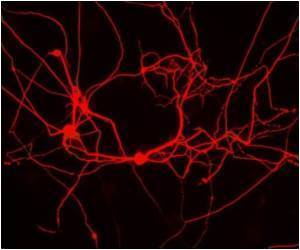Highlights
- Chemo-brain is a substantial and pervasive issue for many women with breast cancer.
- Chemo-brain refers to the cancer-related cognitive impairment that affects memory and leads to problems with attention and processing information.
- Factors like being depressed, anxious, belong to young age group and receiving hormone therapy or radiation could be responsible for cognitive impairment.
What is Chemo-Brain?
Chemo brain is a term used to describe thinking and memory problems that can occur after cancer treatment. Chemo brain can also be called chemo fog, chemotherapy-related cognitive impairment or cognitive dysfunction.
The cancer-related cognitive impairment includes problems with memory, attention, and processing information.
These problems can be frustrating and debilitating for the patients.
Chemotherapy cannot be sole cause of concentration and memory problems in cancer survivors and researchers are working to understand the memory changes that people with cancer experience.
In the study, scientists compared cognitive impairment among 581 breast cancer patients who were treated at clinical sites across the U.S. and 364 healthy people. The mean age of the participants in both groups was 53 years.
Researchers used a specialized tool called FACT-Cog. This tool provides an accurate measurement of cognitive impairment that examines a person's own perceived impairment as well as cognitive impairment perceived by others.
The researchers wanted to find out whether persistent symptoms existed and correlate them with other factors such as age, education, race, and menopausal status, for example.
More Cognitive Impairment Among Breast Cancer Patients
Investigators found that compared to healthy people, the FACT-Cog scores of women with breast cancer exhibited 45% more impairment.
Over a period of nearly a year from diagnosis and pre-chemotherapy to post-chemotherapy follow-up at six months, 36.5% of women reported a decline in scores compared to 13.6% of the healthy women.
Factors that influenced cognitive decline were
- having more anxiety and depressive symptoms
- younger age
- black race
- women who received hormone therapy and/or radiation treatment after chemotherapy had similar cognitive problems to women who received chemotherapy alone
"We are currently assessing these data in the context of objective cognitive measures and to understand the role of possible biologic mechanisms that may confer risk to cognitive problems in patients," Janelsins added.
The Wilmot research led by Michelle C. Janelsins, Ph.D., was published in the Journal of Clinical Oncology.
References
- Chemo brain - (http://www.mayoclinic.org/diseases-conditions/chemo-brain/home/ovc-20170224)
- Michelle C. Janelsins et al. Cognitive Complaints in Survivors of Breast Cancer After Chemotherapy Compared With Age-Matched Controls: An Analysis From a Nationwide, Multicenter, Prospective Longitudinal Study. Journal of Clinical Oncology.; (2016) DOI: 10.1200/JCO.2016.68.5826
Source-Medindia
















